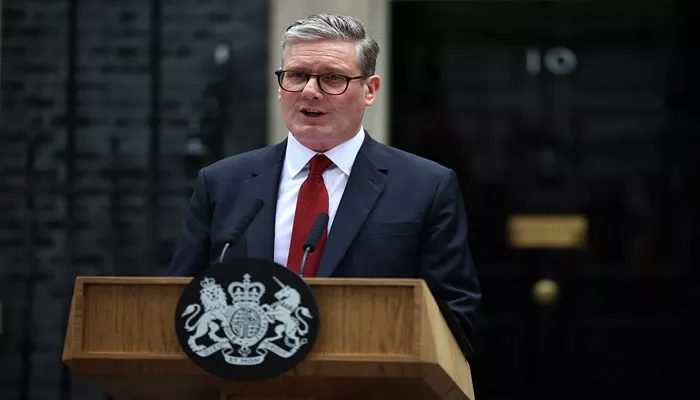Peaceful Protests in the UK Amid Fears of Violence.
Good morning. Anticipated violent riots across numerous towns and cities in the UK last night did not occur. Instead, tens of thousands of peaceful anti-racist protesters filled the streets. Below, we explore how Keir Starmer can navigate the ongoing immigration debate.
Keir Starmer’s Response to Disorder
Keir Starmer accurately stated that the majority of unrest since July 30 was not a form of protest but rather violent disorder. This included racially motivated attacks on mosques and hotels housing asylum seekers. He also correctly prioritized a crackdown on the perpetrators, resulting in hundreds of arrests and swift convictions.
It is important to recognize that many people in various regions feel disenfranchised for several reasons. These include the ongoing cost of living crisis, which has driven up food and housing prices, as well as challenges in accessing basic public services.
As noted by my colleagues William Wallis and Lucy Fisher, senior politicians argue that the “demonization” of asylum seekers, immigrants, and the legal profession by Conservative ministers and far-right figures has fueled anti-immigrant sentiments.
Government Promises and Immigration Realities
Many governments have made numerous promises regarding immigration, only to go against them later. Brexit was promoted as a way to regain control over Britain’s borders. Former Prime Minister Theresa May pledged in 2017 to reduce net migration to the “tens of thousands.” However, this was followed by an increase in non-EU migration to fill skill gaps in the labor market. Recently, Prime Minister Rishi Sunak made “stopping the boats” of migrants crossing the English Channel a key focus of his leadership. He also committed to sending asylum seekers to Rwanda. Unfortunately, neither goal has been realized.
Consequently, many people now associate the issues facing Britain with a singular image: the migrant. A recent YouGov poll revealed that, for the first time since 2016, immigration is seen as the “top issue” in the country, with over half of respondents selecting it.
Labour’s Opportunity in Immigration Narrative
Despite this challenging backdrop, the new Labour government has a chance to develop a nuanced narrative around migration, moving away from the simplistic labels of “bad” and “good.”
Labour’s approach to the asylum system is largely promising. The party has committed to hiring 1,000 additional caseworkers to tackle the backlog of over 80,000 asylum cases. It also aims to eliminate the use of expensive asylum hotels, which have become focal points of contention in struggling communities. If Labour can achieve these goals in the next 18 months, it will significantly reduce the cost of the asylum system and address the issue of small boat crossings, all without drastically cutting the number of asylum seekers coming to the UK.
Future of Legal Migration
On legal migration, Labour is likely to benefit from trends that began before it took office. Net migration hit record levels in 2022, reaching 764,000, and remained significantly above historical averages at 685,000 last year. According to Oxford University’s Migration Observatory, these figures are expected to decline dramatically over the next five years, potentially dropping to around 350,000 by 2030. This decrease will result from more people leaving Britain, fewer overseas students, and recent visa route reforms by Sunak, such as increased salary thresholds for skilled workers and restrictions on care workers bringing dependents. Similar to the Bank of England’s recent interest rate cut, Starmer can claim progress without having to implement major changes.
Labour is correct in stating that it should not continuously rely on overseas labor to fill skill gaps in certain sectors. However, it must also be transparent with the public about the impact of state funding constraints on the need for migration in critical areas of the economy in the coming years. Currently, the biggest drivers of net migration to the UK are professions funded by the state, such as nursing and caregiving. The care sector alone has over 130,000 vacancies that will not be filled quickly, even if Rachel Reeves manages to secure additional funding to increase pay in that sector. Meanwhile, overseas students play a crucial role in supporting the economy.


